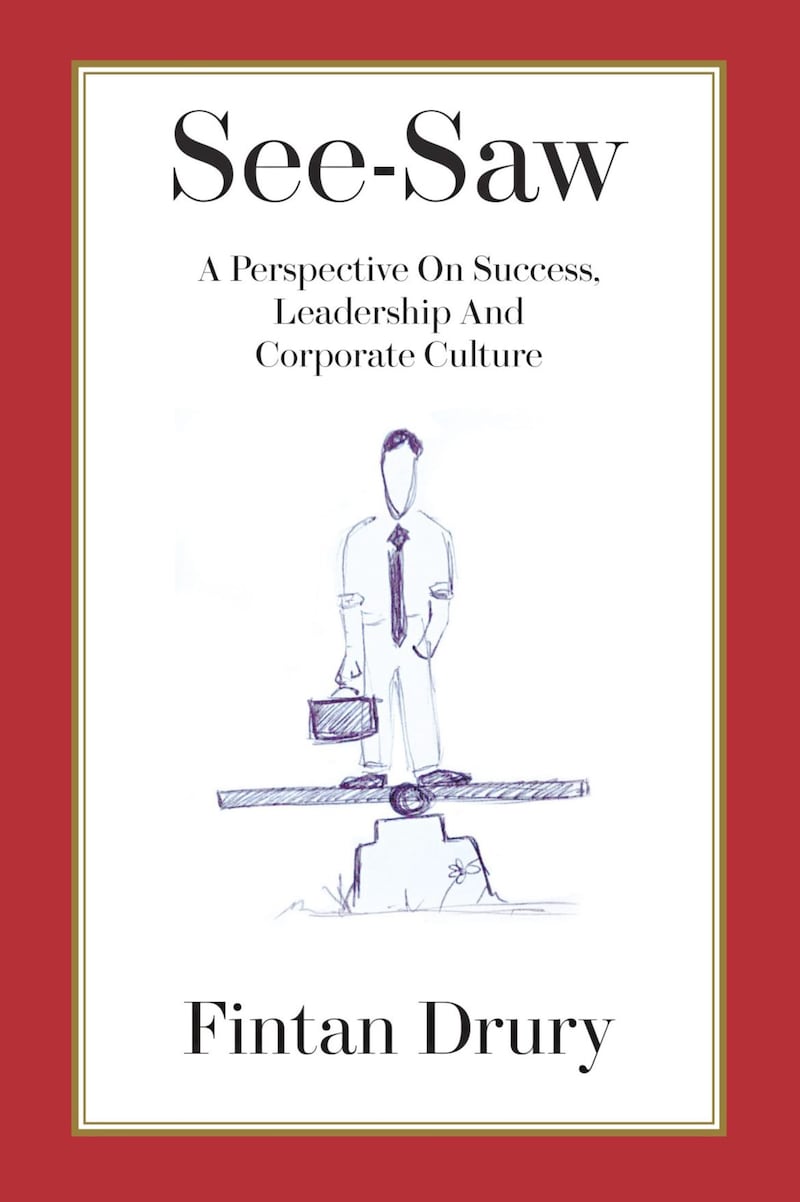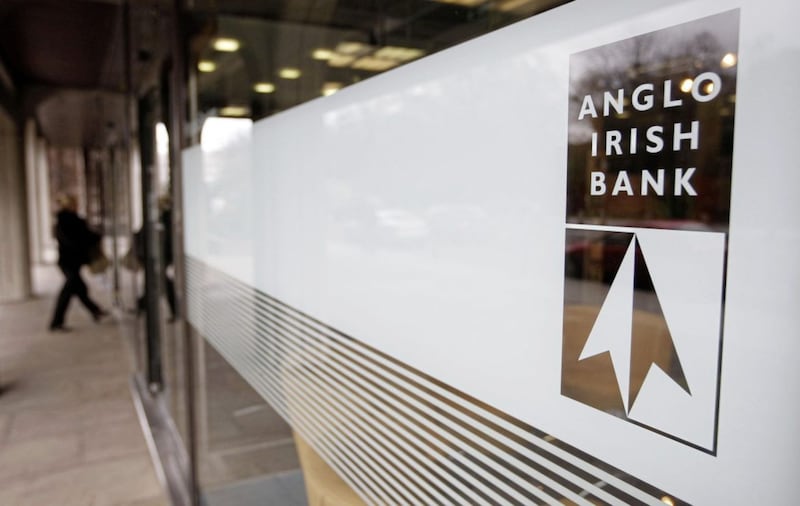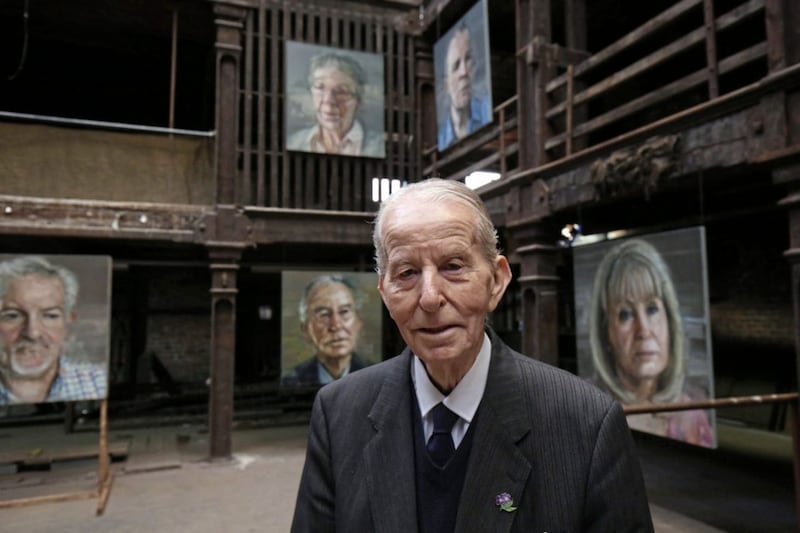WORKING for the late Seamus Mallon, one of the mini pleasures of the job was getting to read books sent to him.
On one occasion a request arrived for Mallon to speak at a book launch at Queen's University Bookshop.
The book was titled The Greening of a Nationalist and written by former National Democratic Party member, Michael McKeown.
Returning from London, Seamus asked, "Am I referenced in the book?"
He wasn't. Without reading a word of the book, his humour-fuelled speech made several references to being omitted, much to the author's amusement.
So when I received Fintan Drury's book See-Saw I was immediately drawn to the index.
Fintan had recruited me into the world of public relations. My ego was sated as there was a reference... albeit incorrect. I was still chuffed.
Fintan Drury is perhaps Ireland's best corporate communications specialist and his book gives the reader a glimpse into a skills of master practitioner.
See-Saw weaves through personal recollections and reflections on his career. Sometimes is not a pretty picture.
Drury was an accomplished journalist and broadcaster with RTÉ. He honed his journalistic skills from the best in broadcasting at that time and could have risen to the top of his profession but switched course.

Drury has successfully meandered multiple careers without ever mapping out a route.
Establishing a public relations company, Drury Communications, with his friend, Billy Murphy, they became a formidable team.
But Drury understood corporate Ireland and convinced the former CEO of Aer Lingus, David Kennedy, to become chairman of the fledging company.
Kennedy was much sought after as a non-executive and was on the board of other premium Irish companies. Other well established notable non-executives would follow Kennedy onto the Drury board.
In Drury's words, "they ran a start up as if it was IBM".
Drury and Murphy were radically different from others in the industry. They were direct, plain speaking and promoted a 'whites of your eyes' approach to giving sage but direct advice to magisterial CEOs.
The company grew rapidly; corporate Ireland really took to Drury Communications.
Blue chip clients included Jurys Doyle, CRH, First National, Greencore, Paddy Power and, perhaps fatefully for Drury, Anglo Irish Bank.
Drury was soon at the top of his game and was sought after to give advice to government ministers too. The relationship between corporate and political Ireland has always been somewhat precarious. Demarcation lines frequently got blurred.
See-Saw shines some light here.
Within the world of corporate Ireland the pool of talent is quite small.
Directorships often overlap to the point where the gene pool can seem incestuous.
This perception became lethal during the now infamous 'Golfgate' at Druids Glen involving then-Taoiseach Brian Cowen, the late Seán FitzPatrick, then boss of Anglo Irish Bank, Gary McGann, a former Anglo non-executive director, economic consultant Alan Gray and, of course, the omnipresent Fintan Drury.

In See-Saw, the author presents a robust defence of this encounter, claiming that nothing was discussed about Anglo Irish Bank or the perilous state of Irish banking.
The timing of this encounter was unfortunate to say the least and it certainly demonstrated a lack of judgment by all concerned. That said, Drury's defence is plausible, not least because of the character of Brian Cowen and Drury himself.
Drury went on to soak up the rewards of corporate Ireland by filling his stable with a wide range of non-executive directorships at RTE, Mainstream Renewables and Web Reservations.
He became chairman of Paddy Power bookmakers - a role he enjoyed but now on reflection appears to regret. Drury seems genuinely concerned about the impact of problem gambling and the lack of engagement by major betting organisations to this issue.
Throughout all this, he also managed to establish and run a premier sports agency - Platinum One - bringing him into contact (sometimes controversially) with the upper echelons of golf, soccer and GAA.
Drury's assessment of the leadership of Brian Cowen is both fair and honest.
Occasionally, it is a little too frank but that's very much the Drury way. In truth, Cowen's tenure as Taoiseach is likely to be reassessed more positively by future historians than current commentators.
But in See-Saw, Drury doesn't throw his long-time friend to the wolves.
Northern readers will be interested in Drury's admiration for the late Seamus Mallon and for former Irish President, Mary McAleese.
See-Saw is essentially a book about leadership, success, failure, poor judgment and loyalty. The author does not spare himself from his own acerbic evaluation.
Blind faith in the late Seán FitzPatrick, CEO of Anglo, did not just rattle corporate Ireland, it severed belief in what was thought to be unassailable.
Drury's reflections are not just those of someone who had a bird's eye view of the Celtic Tiger era, he too was a player. Like most players of that time he flew too close to the sun and got singed. About this he was brutally honest.
The south Armagh poet, Peter Makem says of those days "Ireland was dancing a wild reel".
See-Saw is very readable, not least because of the candour of the author.
See-Saw: A Perspective on Success, Leadership and Corporate Culture by Fintan Drury is published by Ballpoint Press, ballpointpress.ie





